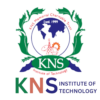ARTIFICIAL INTELLIGENCE & MACHINE LEARNING
ABOUT THE DEPARTMENT
Artificial Intelligence and Machine Learning Department was started in the year 2021-22 with a student intake of 60 due to its high demand in industry and Research. The Department,offer a large number of optional courses for providing a wide spectrum of options to the students to pursue their interests.The primary focus of our curriculum is to impart technical know-how to students, promote their problem-solving skills and innovation of new technologies introducing new developments.Our department maintains active research groups for carrying out collaborative and inter-disciplinary research.We have state of the art research facilities to support our academic programs and research.At present, there are three Phd’s and in the department and dedicated and enthusiastic faculty. It is heartening to find that our students look forward to contributing to solving the technological challenges of society with active participation,perseverance,and hard work.Skill & knowledge relevant to real-world problems is inseminated to produce dynamic,socially conscious, and sensitive human beings.
The course id approved by AICTE and Affiliated to VTU.
Vision
To develop professionals equipped to build sustainable and intelligent solutions that effectively interact with the natural intelligence towards creating a digitally empowered environment for future generations, safeguarding social ethics.
Mission
To impart practical based learning experience through the curriculum and collaborations with established research organizations.
To motivate and influence entrepreneurship efforts among students and develop them into great leaders.
HOD Message

Dr. AIJAZ ALI KHAN
B.E, M.Tech, PhD, FIETE, MIEEE
HOD, Artificial Intelligence & Machine Learning
KNS Institute of Technology, Bengaluru
Most of the IT companies like Microsoft, Google, AMAZON, Tesla, NVIDIA many more have adapted to concept of AI in their system. Artificial Intelligence involves the development of computer systems that mimic a human brain and enable them to perform tasks that usually require human intelligence.
Machine learning is a method of data analysis that automates analytical model building. Artificial Intelligence software, by the leading artificial intelligence companies, is a rapidly growing market that focuses on creating and providing intelligent problem-solving solutions.
Machine Learning is a branch of Artificial Intelligence based on the idea that systems can learn from data, identify patterns and make decisions with minimal human intervention. Computers are becoming smarter, as AI and ML, a subset of AI, make tremendous strides in simulating human thinking.
I Advice the students to Propel your career towards a better job and salary with the most demandable AI & Machine learning program.
Engineering Knowledge: Apply the knowledge of mathematics, science, engineering fundamentals, and an engineering specialization to the solution of complex engineering problems.
Problem Analysis: Identify, formulate, review research literature, and analyze complex engineering problems reaching substantiated conclusions using first principles of mathematics, natural sciences, and engineering sciences.
Design/Development of Solutions: Design solutions for complex engineering problems and design system components or processes that meet the specified needs with appropriate consideration for the public health and safety, and the cultural, societal, and environmental considerations.
Conduct Investigations of Complex Problems: Use research-based knowledge and research methods including design of experiments, analysis and interpretation of data, and synthesis of the information to provide valid conclusions.
Modern Tool Usage: Create, select, and apply appropriate techniques, resources, and modern engineering and IT tools including prediction and modeling to complex engineering activities with an understanding of the limitations.
The Engineer and Society: Apply reasoning informed by the contextual knowledge to assess societal, health, safety, legal and cultural issues and the consequent responsibilities relevant to the professional engineering practice.
Environment and Sustainability: Understand the impact of the professional engineering solutions in societal and environmental contexts, and demonstrate the knowledge of, and need for sustainable development.
Ethics: Apply ethical principles and commit to professional ethics and responsibilities and norms of the engineering practice.
Individual and Team Work: Function effectively as an individual, and as a member or leader in diverse teams, and in multidisciplinary settings.
Communication: Communicate effectively on complex engineering activities with the engineering community and with society at large, such as, being able to comprehend and write effective reports and design documentation, make effective presentations, and give and receive clear instructions.
Project Management and Finance: Demonstrate knowledge and understanding of the engineering and management principles and apply these to one’s own work, as a member and leader in a team, to manage projects and in multidisciplinary environments.
Life-long Learning: Recognize the need for, and have the preparation and ability to engage in independent and life-long learning in the broadest context of technological change.
List of Faculties
1. Dr. Aijaz Ali Khan – Professor & HOD
2. Dr. Arun – Professor
3. Dr. KRN Aswini – Assoc. Prof
4. Mr. Dawa C Leptcha- Asst. Prof
5. Mrs. Ayesha Noorain
6. Mr. Pavan Kumar
Interested?
Get in Touch With Us

